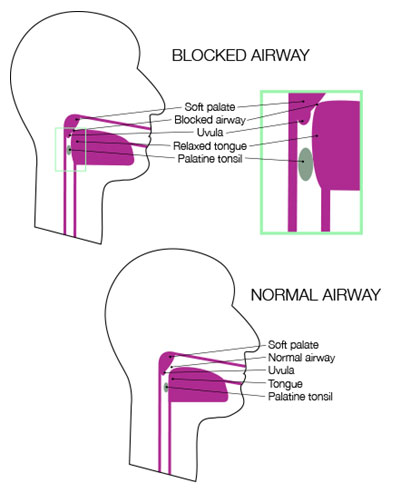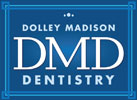Sleep Apnea Dental Resources
Have you been told that you snore loudly? Do you wake up each morning feeling exhausted? You may have sleep apnea, a condition that is notoriously under diagnosed and highly treatable. Using a non-invasive Oral Appliance Treatment, Dr. Wiltbank can help to eliminate snoring and significantly improve your quality of sleep.
Do you have sleep apnea?
Sleep apnea is a very common and potentially life-threatening medical disorder that prevents airflow during sleep. If you’ve been experiencing the following symptoms, you might be suffering from sleep apnea.
- • Excessive sleepiness during daytime hours
- • Memory loss
- • Morning headaches
- • Irritability
- • Decreased sex drive
- • Insomnia
- • General fatigue
- • Sleep that isn’t restful
The quiz below (the Epworth Sleepiness Scale) will help you determine whether your symptoms might be serious enough to warrant treatment. Assess your likeliness of falling asleep in the following situations with a number 0-3, where:
0 = no chance of dozing
1 = slight chance of dozing
2 = moderate chance of dozing
3 = high chance of dozing
| SITUATION |
CHANCE OF DOZING |
| Sitting and reading | _________________ |
| Watching TV | _________________ |
| Sitting inactive in a public place (e.g a theater or a meeting) |
_________________ |
| As a passenger in a car for an hour without a break | _________________ |
| Lying down to rest in the afternoon when circumstances permit | _________________ |
| Sitting and talking to someone | _________________ |
| Sitting quietly after a lunch without alcohol | _________________ |
| In a car, while stopped for a few minutes in traffic | _________________ |
RESULTS
1 - 6 Congratulations, you are getting enough sleep!
7 - 8 Your score is average
9 and up Seek the advice of a sleep specialist without delay
If your score was a 7 or higher, you’ll want to meet with a physician who specializes in sleep medicine and do an overnight sleep study. A sleep specialist will take your symptoms into consideration during diagnosis. Prior to the appointment, ask your partner if you snore loudly, stop breathing, or gasp for breath during the night. The sleep specialist will also want to know if you gained weight or stopped exercising before your symptoms began. Once you’ve met with your doctor and received a sleep apnea diagnosis, Dr. Wiltbank can begin your dental sleep apnea treatment.
What causes sleep apnea?
Sleep apnea is caused by a blockage of the airway due to excessive relaxation of the tongue and throat, or enlargement of throat tissues (see diagram). The tongue is sucked completely against the back of the throat, the airway is blocked and breathing stops. Once that happens, the harder the sleeper tries to breathe, the tighter the airway seal becomes. It's like trying to drink through a straw that's stuck in a lump of ice cream. The harder you suck, the flatter the straw becomes. The airway obstruction won't clear until the brain's oxygen level falls low enough to partially awaken the sleeper. The tongue then returns to a more normal position, and the airway seal is broken—usually with a loud gasp. This process interrupts your normal sleep cycle (even if you don’t wake) and can happen hundreds of times in any given night. This results in exhaustion from a lack of meaningful rest.
Losing weight and getting regular exercise can help alleviate symptoms of sleep apnea by toning the muscles of the throat and minimizing relaxation of throat tissues during sleep. Avoiding alcohol, heavy meals, and medications that cause drowsiness within 2-3 hours of bed time can also prevent this excessive relaxation and improve sleep apnea symptoms.
Sleep apnea, left untreated, can increase risk of hypertension, stroke, heart attack, and in severe cases can cause sudden death.

How can we help?
Sleep apnea can be treated with lifestyle changes (weight loss, change of sleep position) or a CPAP machine, which is worn during sleep. The CPAP machine keeps the airway open by forcing air into the throat, but many patients find the CPAP mask uncomfortable. If lifestyle changes don’t eliminate your sleep apnea issues, and you agree with the many people who find the CPAP machine undesirable, the oral appliance therapy offered by Dr. Wiltbank is an excellent choice.
Oral Appliance Therapy treats sleep apnea by repositioning the lower jaw, tongue, soft palate, and uvula so that these tissues don’t press against one another and obstruct the airway. The patient wears a custom-made device similar to an orthodontic retainer each night during sleep. The initial evaluation phase of oral appliance therapy can take several weeks or months to complete. This includes examination, evaluation to determine the most appropriate oral appliance, fitting, maximizing adaptation of the appliance, and the function.
There are many advantages to Oral Appliance Therapy:
- • Oral appliances are comfortable and easy to wear. Most people find that it only takes a couple of weeks to become acclimated to wearing the appliance.
- • Oral appliances are small and convenient making them easy to carry when traveling.
- • Treatment with oral appliances is reversible and non-invasive.
First Appointment
Many patients interested in oral appliance therapy aren’t sure how to get started with the process, and what needs to be done in order to have the therapy covered by insurance. Most people will fall into one of the following three categories:
a. You think you have sleep apnea, but haven’t been diagnosed
• Call us to schedule an initial appointment and preliminary sleep apnea screening.
• We will provide you with a device that measures your blood oxygen saturation during sleep. After you’ve used the device and returned it to us, we can run a report that will help us determine if you have sleep apnea.
• If the tests confirm that you do have sleep apnea, we will schedule an appointment to take impressions for your oral appliance.
b. You’ve been diagnosed with sleep apnea, but aren’t sure what to do next
• Call us and provide us with the following information
- When were you diagnosed?
- What is your medical insurance?
- Have you been given options of weight loss or oral surgery to remove excess tissue around the airway?
• Send your medical history and the the results of your sleep study to Dolley Madison Dentistry.
• Once we receive these documents, an appointment will be made to take impressions for your oral appliance.
c. You’ve been diagnosed with sleep apnea and have a prescription for an oral appliance
Call us and we’ll schedule an appointment to take impressions for your oral appliance.
No matter what, your initial visit will include a discussion about the financial aspects of the treatment. We want you to understand what your insurance will cover, and what your out-of-pocket expenses will be.
If you have questions about what the best first step is for your situation, please don’t hesitate to call us at 703-356-7890.
FAQ
How effective is an oral appliance?
Oral appliances have been shown to effectively control snoring in over 90% of patients. Mild and moderate sleep apnea responds extremely well; even many cases of severe apnea have been resolved with oral appliance usage.
How long will it take to get the appliance?
If at your first visit a decision is made to proceed with oral appliance therapy, impressions may be immediately taken and the appliance insertion visit can be scheduled. Usually that appointment can be scheduled two weeks from the initial visit.
Should I try a non-custom appliance first to see if it helps?
Non-custom appliances are not recommended. While some alleviation of symptoms is possible, it is unlikely to actually stop the apneic events (when you stop breathing during sleep). The critical jaw position and bite relationship cannot be determined without a full examination. Additionally, a custom appliance will likely help you even if the non-custom appliance does not. A non-custom appliance is also more likely to be uncomfortable and to create side effects of joint and muscle pain.
What is Oral Appliance Therapy (OAT)?
A specially designed and adjusted customized oral appliance repositions the jaw and tongue during sleep. The oral appliance creates support for the airway that tends to collapse during sleep, stiffens the soft palate, and can be a highly effective therapy for snoring and sleep apnea. OAT is often a viable and more comfortable alternative to CPAP therapy.
Which appliance is right for me?
There are several appliance choices. One of the purposes of the first visit is to decide which is the best for you.
Why is it important that this condition be treated?
There are two reasons to treat snoring and apnea. The first is to improve your quality of life. Apnea and snoring can result in altered sleep patterns; and as we know, sleep is very important to the healing process and our ability to perform normally throughout the day. Snoring, of course, can be a nuisance to a bed partner as well.
The second reason is the relationship of apnea to serious medical consequences. Untreated sleep apnea can contribute to the following conditions:
- • High blood pressure and other cardiovascular disease
- • Risk for heart attack
- • Risk for stroke
- • Pulmonary hypertension
- • Weight gain
- • Migraine headaches
- • Morning headaches
- • Hyperactivity in children
- • Diabetes
- • Impotency and sexual dysfunction
- • Depression and anxiety
- • Mood swings
- • Job impairment
- • Marital and other personal relations
- • The likelihood of motor vehicle accidents
- • Accidents at the workplace
- • Acid reflux
- • Bruxism (teeth grinding)
- • Brain and cognitive changes
Will I be able to use an oral appliance?
One of the major advantages of an oral appliance is patient compliance. Over 90% of those given an oral appliance continue to use the appliance after two years! Most patients are well adjusted to them after only two weeks.
Will my insurance cover the device and follow-up visits?
Coverage of the therapy varies from policy to policy. In many cases, a referral by your physician with a letter of medical necessity is an aid to obtaining coverage. Please note that this treatment is considered a medical procedure and will NOT be covered by your dental insurance. Dolley Madison Dentistry is experienced in working with medical insurance companies, ensuring you the maximum coverage available.?
With flexible appointments and a convenient location, our professional and caring dental team is the right choice for sleep apnea in Mclean, VA. Call 703-356-7890 today for your next appointment!




